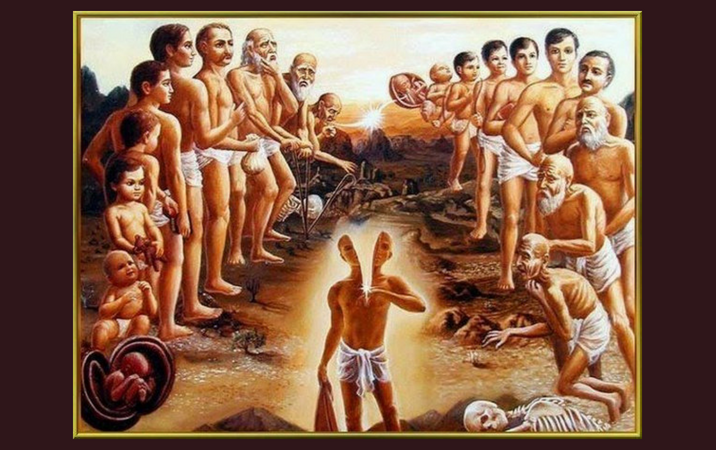Question: What divides animals and humans in Hinduism? How are animals perceived in Hinduism? Are they treated differently?
Answer by Romapada Swami: First I would like to offer some background on the word “Hinduism”.
Srila Prabhupada, the founder-Acarya of ISKCON, explains, people from Afghanistan, Baluchistan, and Persia mispronounced the name of the river “Sindhu”, calling the river “the Hindu” and the people living in and beyond its valley “Hindus.” (Please refer to Science of Self Realization).
There is actually no such word as “Hindu” in the Vedic texts, nor in a Sanskrit dictionary.
According to the Vedic teachings all living entities are spiritual equals, i.e. eternal spiritual souls, fragemental parts of the Supreme Soul, some of which are occupying different bodies within this created realm. See Bhagavad-gītā 14.4 and 15.7. All life therefore has equal value and is entitled to protection under the law of material nature. Heads of State governments are duty-bound to provide this protection, according to the codes of the Vedic scriptures.
Drawing upon information revealed in the Vedic literature, Srila Prabhupāda teaches that just as all human beings are embodied spirit-souls, equal in the eyes of the Lord, so too are animals. As such, he explains, the human being who kills an animal must be held morally and karmically responsible for that death under the laws of God and nature, just as one would be for causing the death of a human being. According to the Vedic instruction, he says, human society should protect the animals’ right to live and be protected.
Bhagavad-gita 5.18 “The humble sages, by virtue of true knowledge, see with equal vision a learned and gentle brahmana, a cow, an elephant, a dog and a dog-eater (outcaste).”
What divides Animals and Humans:
Animals are largely controlled by natural instincts, arising from impulses born of the modes of nature. Due to the fact that their consciousness is less evolved than the soul occupying a human form of life, animals are not held responsible karmically for these actions; they do not incur any new karma.
Humans on the other hand have received their life form as a result of naturally occurring evolution of consciousness, including the ability of rational thinking, thus making choices of behavior beyond the level of animalistic impulse. With this facility of higher consciousness comes responsibility for their actions, thus resulting in Karma.
By design, human life is ultimately meant for reviving our lost relationship with God by following the instructions of God contained in religious books like the Bhagavad-Gita, Srimad-Bhagavatam, etc. Animals do not have the capacity or developed intelligence by which they can understand the process of self-realization and God realization (including understanding why are we suffering, who am “I”, what is the goal of my life, etc.).
These are some of the major differences between the animal and the human form of life.







